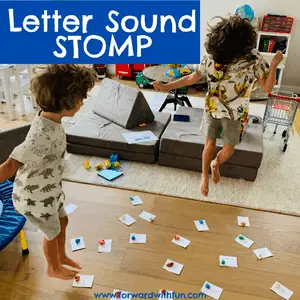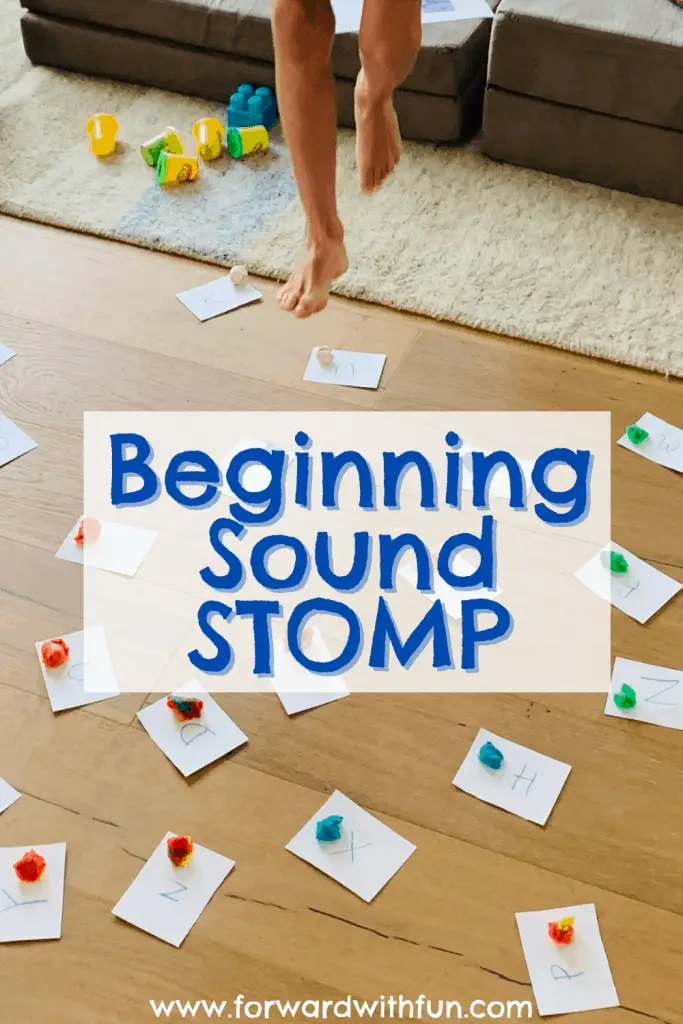
Searching for beginning sounds worksheets? You won't find those here. My goal in creating Forward with Fun is all about using play to create unique and memorable learning. Kids are more likely to engage and remember new skills when they are actively participating in experience, especially if it's a game! That's the secret to getting kids to LOVE learning!
Isolating beginning sounds is part of a set of early reading skills called phonemic awareness, the understanding that words are made up of sounds. When kids connect a specific sound to a letter name, that is called phonics.
*As an Amazon affiliate, I may get a small commission for purchases made through links in this post.


I'm sure the set-up laid out before your child is sure to inspire and delight them. To invite them to play share your Bag of Items.
As you pull items out, one at a time, ask your child whaat sound they hear at the beginning of the word, then find the matching letter on the ground. Once they find the letter that makes the beginning sound of that item they can jump, hop, or STOMP the Play-doh ball next to it!
Here is an example from our beginning sounds STOMP game.
Me: What's this? A hammer. What sound do you hear at the beginning of the word hammer?
Big Sis: /h/ /h/ Hammer.
Me: What letter makes the /h/ sound?
Big Sis: The H!
Me: Alright, let's stomp the H!
If your child doesn't know a letter sound, remind them. No big deal. We love to sing this phonics song we heard from a Leap Frog toy, "The B says /b/. The B says /b/. Every letter makes a sound. The B says /b/." If they don't know any letters, start with 2-3 objects. You can always simplify a game so they can still get important practice in with beginning sounds without knowing many letters names.
Before starting kindergarten, kids should be able to write their names and name some letters and sounds. (To grab your FREE kindergarten readiness checklist, check out this post.)
Mastery of all letter names and their corresponding sounds are expected at the end of kindergarten, according to USA Common Core standards:
CCSS.ELA-LITERACY.RF.K.1.D
Recognize and name all upper- and lowercase letters of the alphabet.
CCSS.ELA-LITERACY.RF.K.2.D
Isolate and pronounce the initial, medial vowel, and final sounds (phonemes) in three-phoneme (consonant-vowel-consonant, or CVC) words.1 (This does not include CVCs ending with /l/, /r/, or /x/.)
When your child starts showing interest in books and the words on the page, you can begin pointing out letters. This can be as early as 2 or even as late as 4 years old. All kids are different and show interest at different ages.